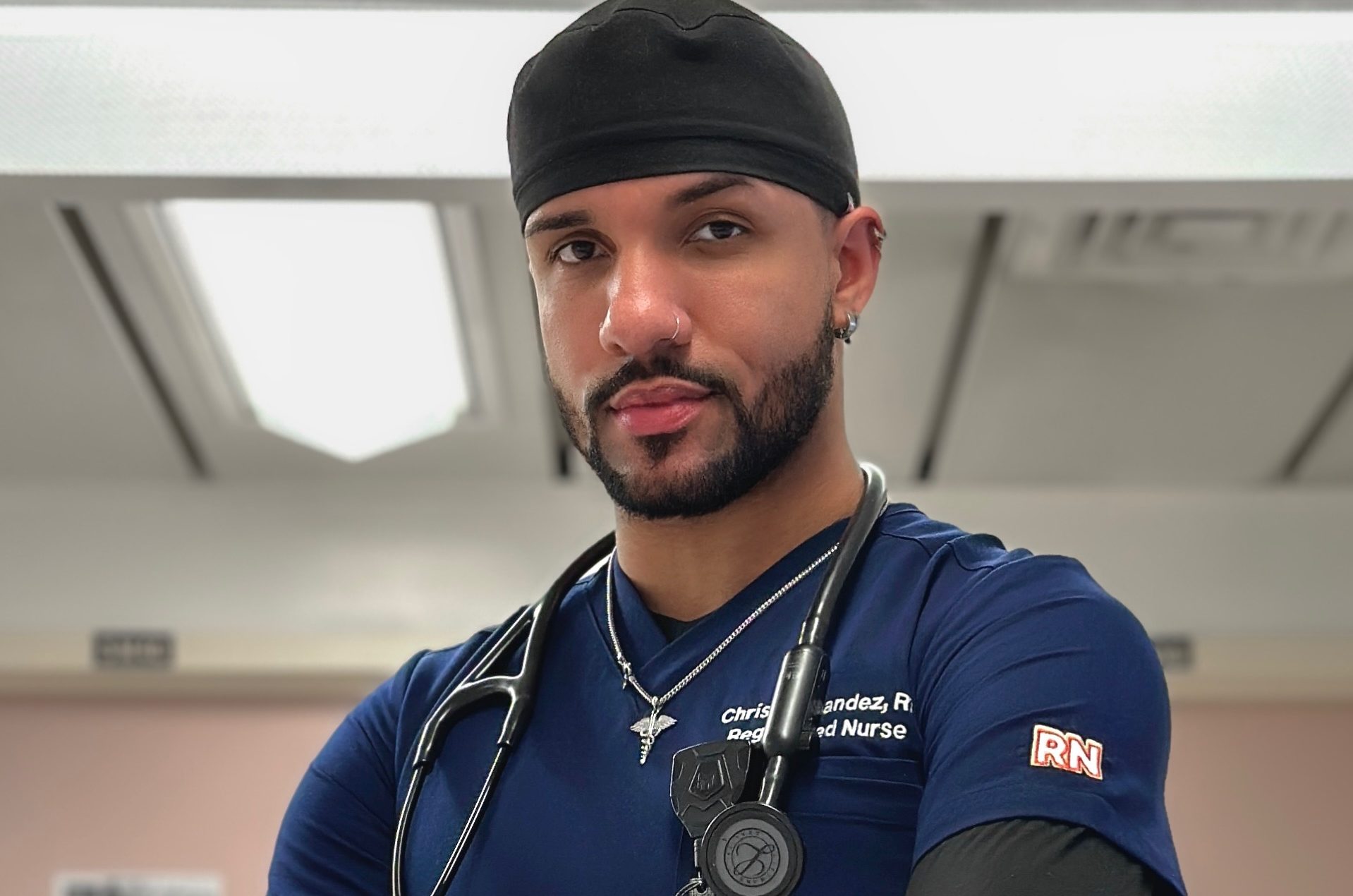Speaking Out: A Risky Act of Conscience
Chris Hernandez, a registered nurse and outspoken advocate for social justice, never imagined that standing in solidarity with Palestine would lead to threats, professional consequences, and a full-fledged smear campaign. His story highlights the dangers of conflating Zionism with Judaism and the immense pressures faced by those who speak out against oppression.
A Call to Advocacy
Chris’s motivation to speak out on Palestine began in 2016 when he witnessed the immense suffering of the Palestinian people. “I saw peaceful demonstrators met with brutal force from the Israeli Defense Forces,” he recalls. “The humanitarian crisis—water cutoffs, restrictions on essential goods, and destroyed infrastructure—was heartbreaking. I couldn’t stay silent.” As a nurse, Chris has long worked with marginalized groups, from undocumented immigrants to LGBTQIA individuals. His frontline experiences with systemic injustice fueled his commitment to advocacy beyond the hospital walls.
The Backlash: A Targeted Smear Campaign
Chris first spoke out about Palestine on social media, only to face an immediate wave of backlash. “I was accused of supporting the Holocaust, Nazism, and terrorism. They labeled me antisemitic simply for criticizing the Israeli government’s policies,” he explains. The backlash intensified after a TikTok video in which Chris compared a Jewish acquaintance’s fears of antisemitism to the historical persecution of LGBTQIA individuals. A nine-second clip was taken out of context and circulated by pro-Zionist accounts, twisting his words to falsely imply that he was advocating for Jewish people to “shut up” about antisemitism.
Professional and Personal Consequences
The smear campaign didn’t just tarnish Chris’s online reputation—it directly impacted his career. He was placed on paid administrative leave for five months while his employer investigated whether he had violated social media policies. Though ultimately reinstated, the ordeal took an emotional toll. “The investigation cleared me, but the damage was done,” Chris says. “It was exhausting. I felt isolated, anxious, and constantly on edge.”
Media Misrepresentation and Attempts to Set the Record Straight
The New York Post published a misleading article about the controversy, further distorting Chris’s words. He reached out to correct the record, but his efforts went ignored. Instead, he turned to his social media community for support, relying on colleagues and friends to help counter the false narrative. “I’ve always stood against all forms of discrimination,” Chris emphasizes. “My Jewish friends know my heart and stood by me when the attacks started.”
Personal Perspective
The criticism of Chris Hernandez primarily stems from political disagreements rather than opposition to Judaism itself. His statements have been misrepresented, conflating legitimate criticism of Israeli government policies with antisemitism. It is crucial to distinguish between Judaism—a diverse religious and cultural tradition—and Zionism , a political ideology. While some within the Jewish community have opposed Chris’s stance, many others recognize his advocacy as grounded in universal principles of human rights and social justice.
Deconstructing White Privilege
This experience also speaks to the process of deconstructing white privilege. As white individuals, including those who are Jewish do not face the same level of discrimination as other minorities who cannot hide their identities. This was Chris’s point, which was taken out of context. Even within the community, one must recognize the privilege of being able to conceal ones identities in ways that other marginalized groups cannot.
The Cost of Advocacy: Silence or Survival?
Despite his deep convictions, Chris has since stepped back from vocal advocacy for Palestine on social media. “I had to prioritize my livelihood,” he admits. “I still support Palestine’s sovereignty, but I can’t risk my career again.” Instead, he advises others to protect themselves when speaking out: “Use anonymity. Don’t share personal details. The people who push these smear campaigns are relentless.”
The Broader Battle: Freedom of Speech and Power Dynamics
Chris’s experience underscores the precarious nature of free speech, particularly when it challenges powerful institutions. “Freedom of speech is conditional,” he argues. “When you speak against oppression, you become a target. The government, media, and corporate interests work together to silence dissent.” The medical field, in particular, needs to do more to protect professionals who advocate for human rights, he says. “Palestinian healthcare workers are especially vulnerable to attacks. Institutions must stand by their employees instead of caving to external pressure.”
Moving Forward: Lessons in Resilience
Chris’s journey is a cautionary tale about the cost of activism in a world where social media can be weaponized against those who speak out. But despite the hardships, he remains committed to his core values. “I’ve learned that resilience sometimes means stepping back,” he reflects. “But that doesn’t mean giving up.” As he continues his career in nursing, Chris hopes to inspire others to advocate for justice while protecting themselves from the same pitfalls he faced. His story is a stark reminder of the power—and the peril—of standing up for the oppressed in a world that often seeks to silence them.
Below is the nine-second clip that was taken out of context. Here’s what really happened.





